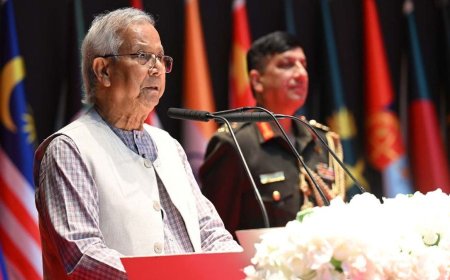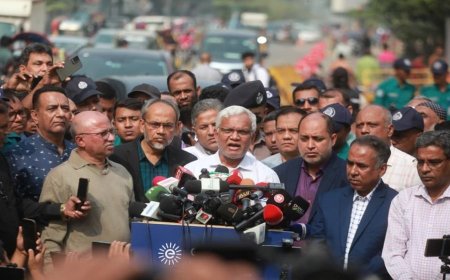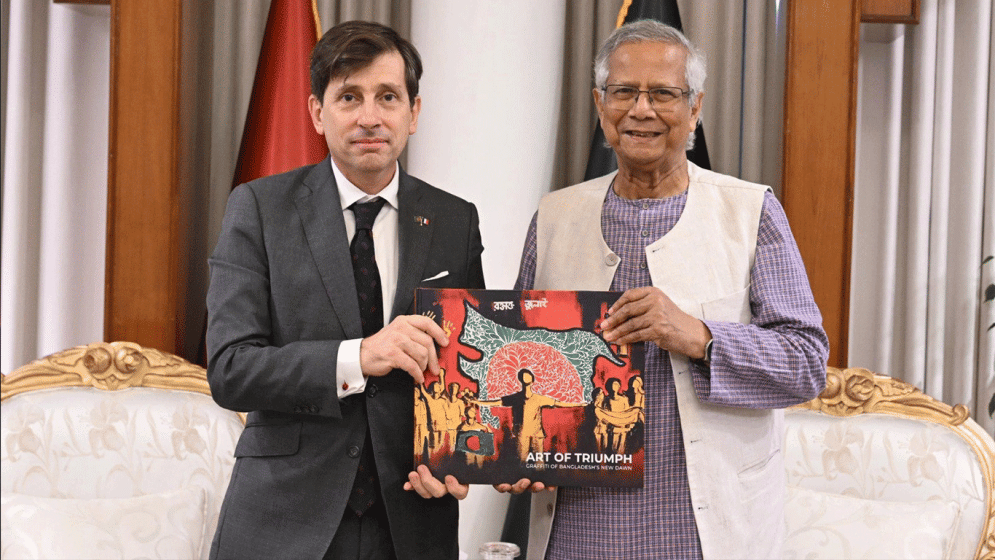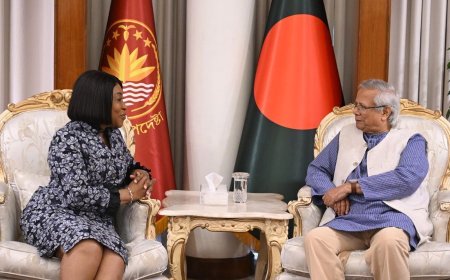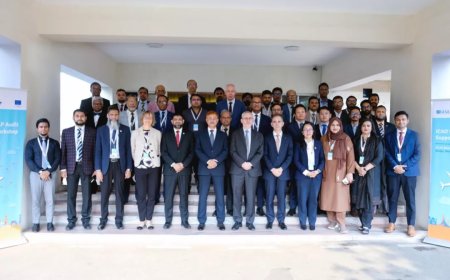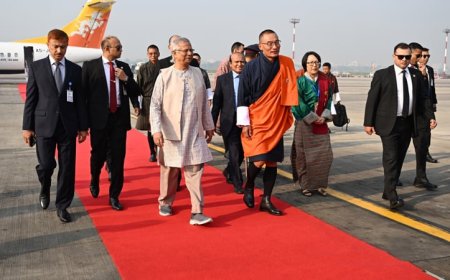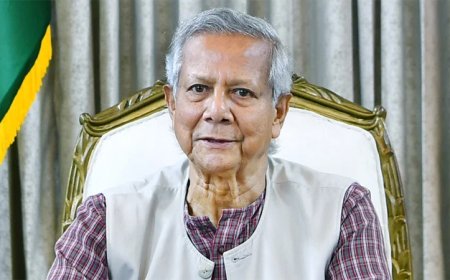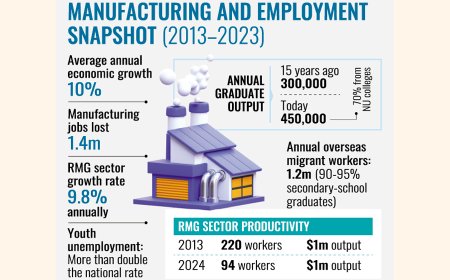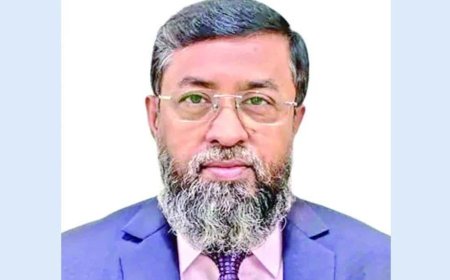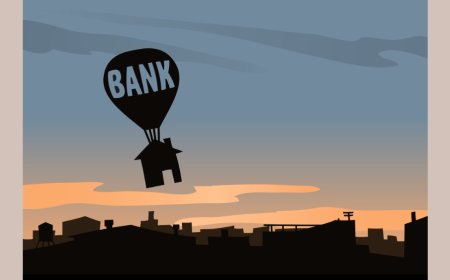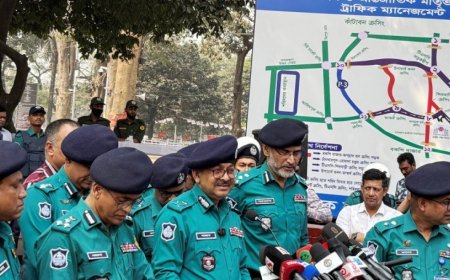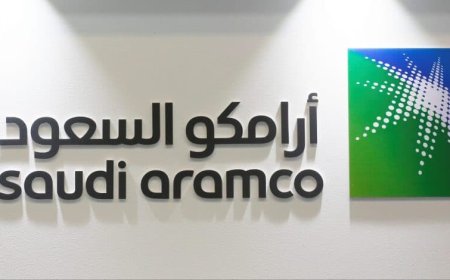Strengthening our ethical foundation
A nation lacking moral integrity is bound to face inevitable downfall.

Strengthening the Moral Foundations of Bangladesh
The widespread corruption of recent times, manifesting in various forms, has profoundly undermined the moral bedrock of Bangladesh. When corruption infiltrates the upper echelons of government, its influence often trickles down, permeating every level of society. This systemic decay fosters unethical practices such as bribery, deceit, and manipulation in daily life and social interactions. Amidst this environment, individuals striving for honesty often find themselves disheartened, marginalized, and powerless.
A nation without moral integrity is inevitably destined for failure. Addressing this pervasive societal and national crisis demands a committed, multifaceted strategy. The solution lies in blending time-honored religious teachings, societal values, and ethical governance to rebuild the moral character of its citizens.
Role of Education Providers
Educational institutions – including schools, madrasas, colleges, and universities – must take the lead in this mission, supported by parents, religious scholars, and community leaders. Achieving this vision requires a synergistic effort, combining a top-down approach driven by the state with grassroots initiatives powered by the people.
Restoring Ethics in Public Life
Restoring ethics in public life necessitates a comprehensive, multifaceted approach:
-
Institutional Strengthening: Institutions must be fortified to ensure independence from political influence and safeguard judicial impartiality. A free, vibrant media is essential to uphold transparency and accountability.
-
Practical Education: Civic responsibility and ethical values must be embedded in educational curricula to nurture a culture of integrity and accountability.
-
Legal Reforms: Repealing laws that stifle freedom of speech and critical thinking, alongside enacting robust legislation to promote transparency, is crucial.
-
Leadership by Example: Ethical behavior from those in power sets a strong precedent, inspiring public trust and confidence.
-
Citizen Empowerment: Encouraging active participation in decision-making processes promotes transparency and fairness, paving the way for sustained development.
Building a society rooted in ethics requires engaging individuals, families, communities, and institutions at all levels. The following initiatives highlight key areas for fostering and reinforcing ethical values across Bangladesh.
Key Initiatives for Ethical Rejuvenation
Integrated Education
An integrated curriculum emphasizing ethics and values such as honesty, justice, tolerance, and respect for others is essential. Combining this with positive parenting practices can nurture socially responsible adults. Families, as the first school of ethics, play a foundational role in shaping the moral behavior of future generations. Strong family bonds significantly influence the development of integrity and accountability in children.
Community Initiatives
Community-driven efforts, including events, seminars, and workshops, can raise awareness about ethical issues through the lens of religious teachings and universal values. Social leaders and scholars should address contemporary moral dilemmas, promoting community support systems like neighborhood watch programs and volunteer activities. Mosques and other places of worship can serve dual roles as centers of moral education and spiritual guidance, with religious scholars delivering sermons that address relevant ethical challenges and inspire positive change.
Role Modeling
Celebrating individuals who exemplify high ethical standards – such as community leaders, business figures, and public servants – can inspire others. Youth-focused programs within religious and community institutions that emphasize the practical application of ethical principles can also be transformative. Additionally, training government officials and public servants in ethical decision-making will ensure that public administration is guided by principled frameworks.
Public Discussions
Encouraging public discourse on moral and ethical issues through debates, panel discussions, and community dialogues promotes self-reflection and accountability. Teaching self-examination as a tool for personal growth and moral integrity should begin in early childhood. Partnerships with NGOs and civil society organizations focused on ethics, human rights, and social justice can amplify these efforts, contributing significantly to national regeneration.
Leveraging Technology
Social media and digital platforms offer powerful tools for disseminating content that promotes ethical living and aligns with religious and moral values. Videos, articles, and infographics can effectively reach younger audiences. Online communities for discussions on ethics and morality provide spaces for learning and sharing ideas, fostering an understanding of ethical living in a modern context.
By integrating these strategies, Bangladesh can foster a culture of ethical awareness, personal responsibility, and social integrity, paving the way for sustainable development and moral rejuvenation.
Discipline Through Physical Training
In a society where impulsiveness and short tempers are common, mandatory physical training, including martial arts, can be a transformative tool. These programs instill discipline, patience, and resilience through structured schedules and respect for rules and authority. Martial arts, in particular, emphasize self-awareness, focus, and emotional control, enabling individuals to manage stress and frustration effectively. Physical training also nurtures teamwork, emotional maturity, and mutual respect, fostering a cooperative and respectful community spirit. Carefully planned and well-resourced programs can integrate these values into the national fabric.
Dynamic Spirituality as a Path to Ethical Revival
Bangladesh, positioned at the crossroads of tradition and modernity, must preserve spiritual values while adapting to social changes. Strengthening spiritual awareness is central to fostering individual integrity and societal cohesion.
Islamic ethics, as a guiding framework for the majority, offer profound moral guidance through principles, teachings, and rituals. Religious scriptures provide timeless lessons in humility, empathy, and fairness, inspiring introspection and righteous actions. Spirituality instills values such as love, tolerance, and patience, fostering a connection to a higher purpose and promoting social harmony. Acts of charity and community service exemplify this ethos, addressing socio-economic disparities and reinforcing social responsibility.
Integrating modern education with religious ethics offers a balanced worldview, empowering future generations to act as agents of positive change. By embracing dynamic spirituality, Bangladesh can align its rich cultural heritage with modern demands, ensuring ethical resilience and collective progress.
A Holistic Path Forward
In an era of global moral decline, reinforcing the ethical compass of Bangladeshi citizens requires a holistic approach that integrates religious principles, educational reforms, community initiatives, and good governance. Embedding these values at all levels of society can nurture a culture where ethical behavior becomes a way of life, guiding individuals in both their private and public spheres.
As the Prophet Muhammad (peace be upon him) profoundly stated, “I have been sent to perfect good character.” Embracing this timeless message can inspire a society rooted in empathy, justice, and righteousness, ensuring a brighter, more ethical future for all.
What's Your Reaction?








